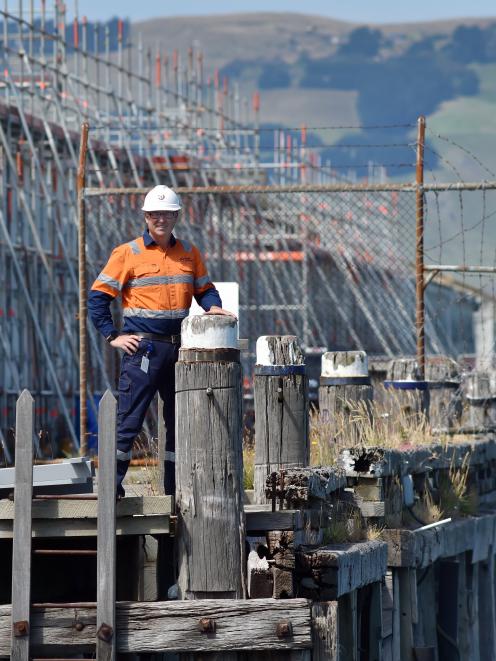
Port Otago chairman David Faulkner said the more modest dividend for 2019 - down from $9million in 2018 - reflected a need for ''sustainable and predictable dividend flow'' by the parent ORC, versus a requirement for ever increasing returns.
Port Otago yesterday reported a 12% increase in overall profit to $49.3million, off revenue of $121.7million.
This was on the back of a nominal increase on total container throughput (TEUs) to 208,600 TEUs while bulk cargo volumes were up 5% to 1.8million tonnes.
Shareholders' equity also increased to above the half billion-dollar level for the first time, which provided the company with a ''strong financial base to take advantage of future investment opportunities,'' Mr Faulkner said.
Referring to the annual remuneration of more than $610,000 to Port Otago chief executive Kevin Winders - an increase of more than $100,000 over the prior year - Mr Faulkner said this ''reflected his annual incentive being paid for the first full year of Mr Winders' employment.''
According to the port's annual report for the year, the salary bill for the company's top management also went up as a whole, with 101 staff - 18 more than the prior year - at a remuneration level of at least $100,000 per year and a dozen staff now at above the $200,000 level.
The port employs about 325 staff at present.
He said the company's performance had been driven by increased operational revenue, specifically bulk cargo, wharfage and cruise vessels, as well as increases in investment property rentals.
Log volumes continued on its growth cycle at a record 1.15million tonnes - up 8% year on year, though Mr Faulkner noted that recent pricing pressures in international log markets were likely to negatively impact volumes going forward.
Passenger growth from cruise liners was also up on prior years, with 115 ships bringing about 238,000 international visitors to the region, leading to an estimated economic impact of $60million to Dunedin.
''As a business we invested $23million in extending our multi-purpose wharf at Port Chalmers, mainly to accommodate more and larger cruise vessels.
''To see this investment filtering through and substantially benefiting the Dunedin economy is particularly pleasing to our board,'' Mr Faulkner said.
He said the port expected 130 ships during the coming cruise season, bringing an estimated additional 37,000 visitors and contributing about $70million to the local economy.
However, Mr Faulkner said the port expected softer container volumes for the year ahead as global conditions slowed and as international shipping lines looked to eliminate waste.
''We continue to look for efficiencies in supply chains to assist our customers to invest in the infrastructure to support the increasing size of vessels calling in New Zealand.''












